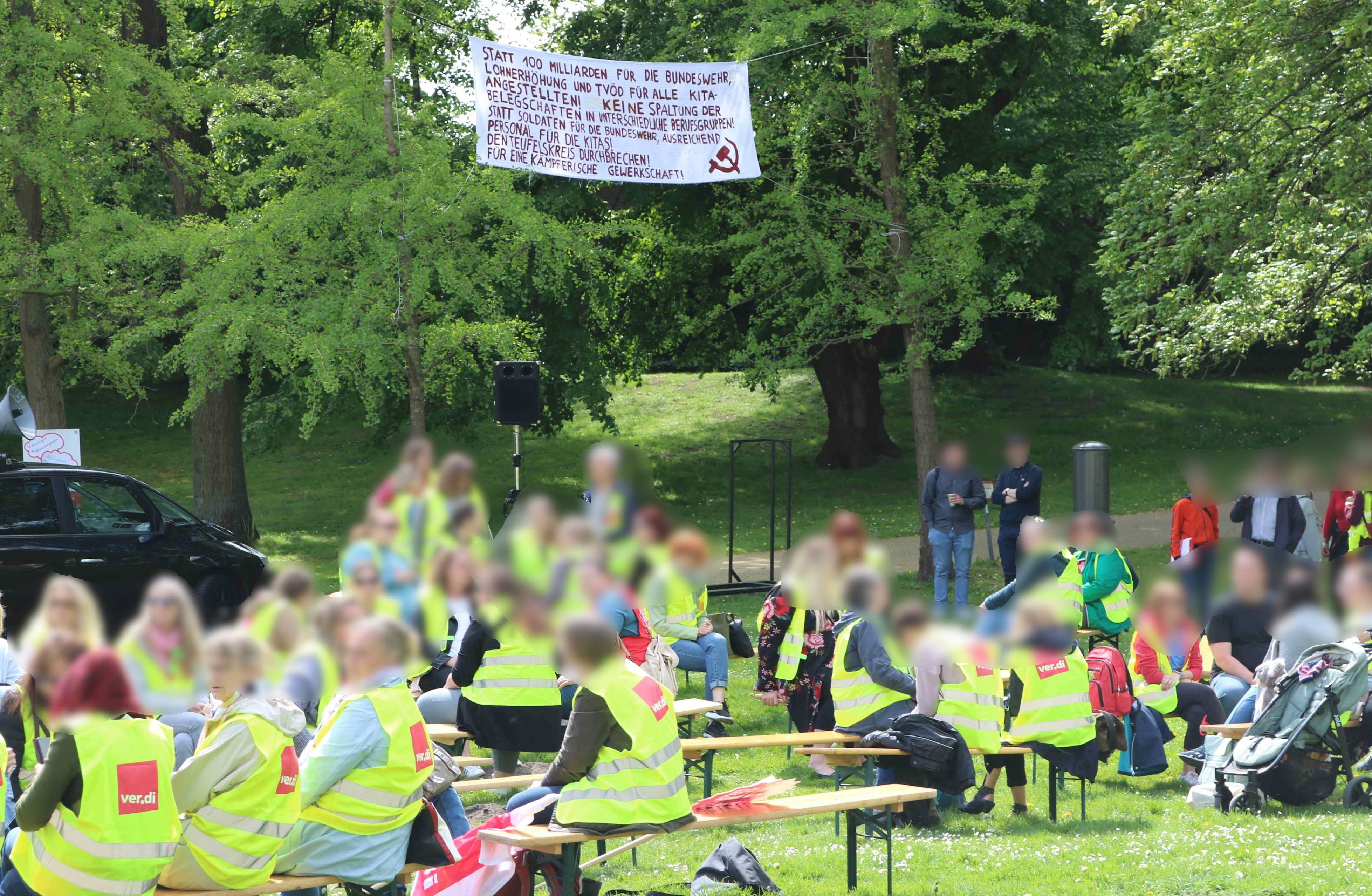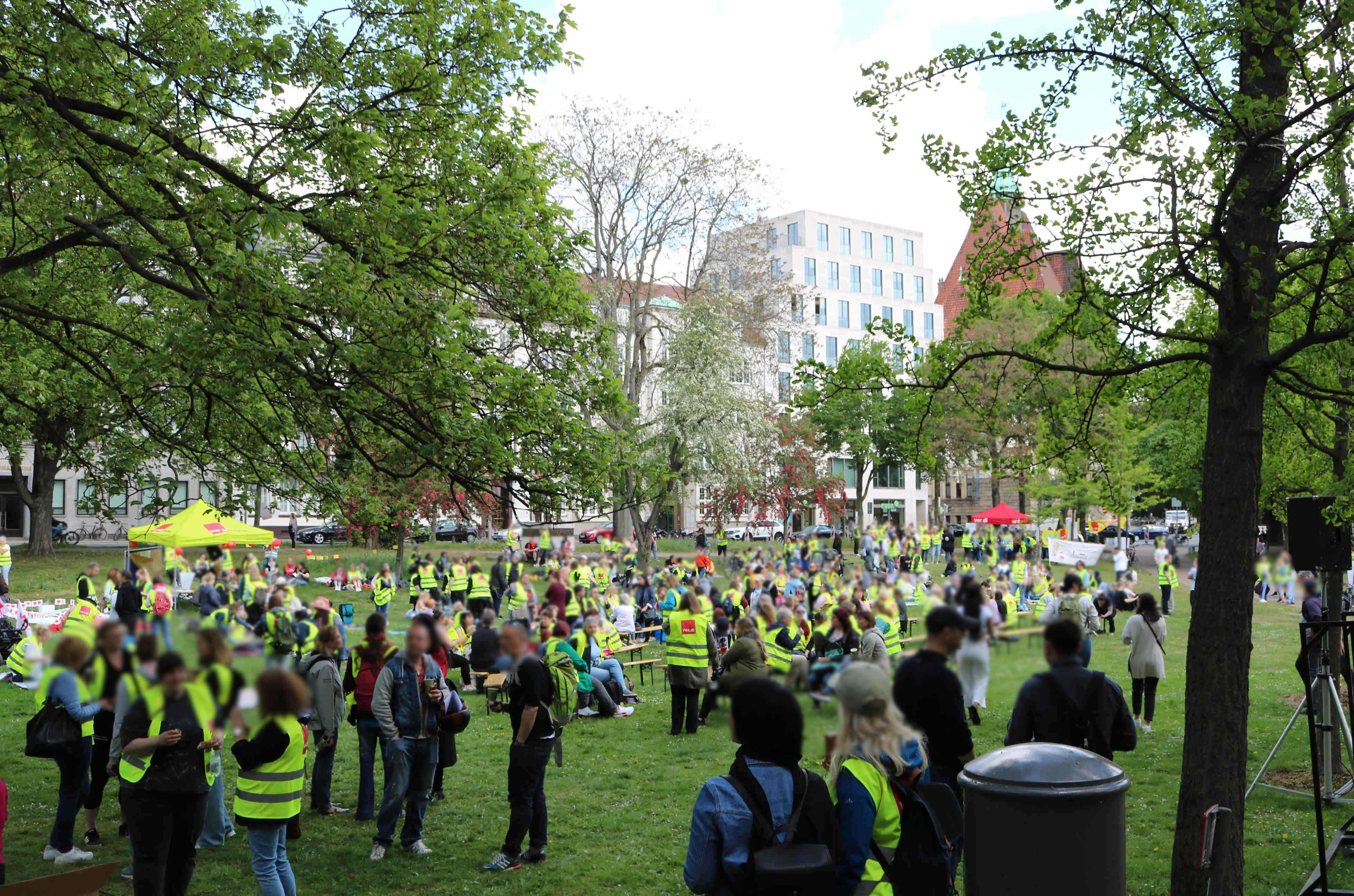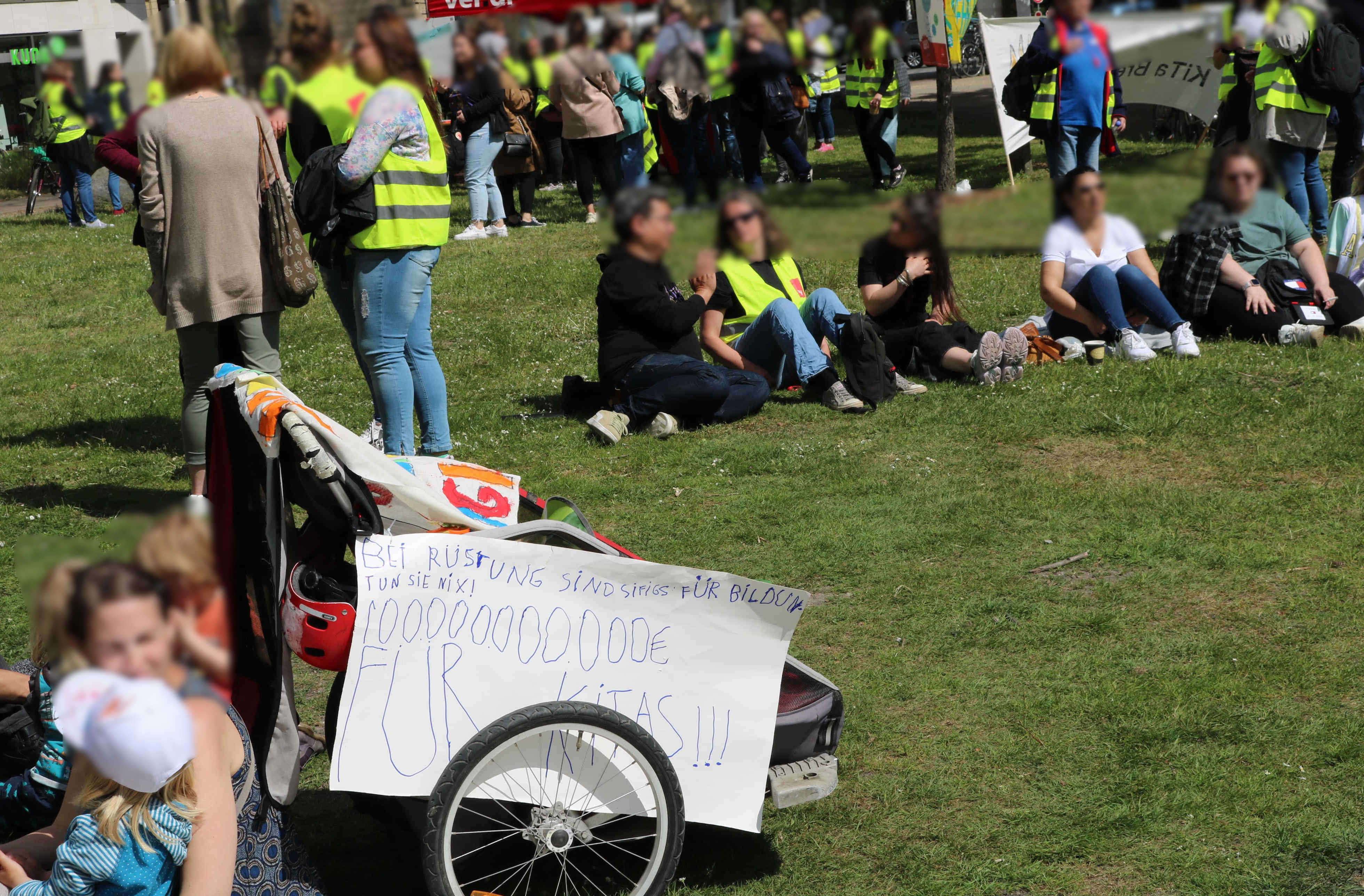On Thursday, 12 May, more than 400 kindergarten workers from Bremen gathered in the Wallanlagen for a warning strike called by the ver.di trade union.
The demands were mainly aimed at reducing the workload of the staff, as the state does not care about the situation of educators, assistants, etc. and keeps the costs for the day care of almost 4 million children in Germany as low as possible, while it promises support to the big companies and pumps huge sums into war armament. According to various estimates, there will be a "shortage of skilled workers" in the day-care sector of 230,000 to 300,000 employees (!) in the next few years - the ones who are still there and stay will have to shoulder the burden. Almost 20 per cent of the 2300 workers employed by KiTa Bremen are a sign of the workforce's willingness to fight against these unacceptable conditions. On a large meadow, somewhat away from the eyes of the public, the forms of action, however, did not coincide with this willingness to fight, but rather gave the warning strike more the expression of a relaxed sit-in and gave the impression of having a negative effect on the willingness to fight with which the day-care centre workers had come. That is why a banner of the Red Women's Committee Bremen, which hung over the assembly during the whole action, also formulated the demand for a militant trade union.
The action in these times of war was also linked to the rejection of the war in Ukraine and especially the militarisation led by German imperialism. Thus, the demand not to give the 100 billion special funds to the Bundeswehr but to give enough to the education sector was not only formulated on the said banner but also by participants of the rally on self-made signs.(1)
(1)
A "Tarifvertrag" regulates relations between employers and employees and is a collective agreement. It contains specifications for individual employment contracts. These specifications are binding on employers and regulate a "fair" wage for the worker's activity and regulate working conditions.
According to section 1 (1) TVG, "the Tarifvertrag regulates the rights and obligations of the parties to the Tarifvertrag and contains legal norms which can regulate the content, conclusion and termination of employment relationships as well as operational and works constitutional issues."
An equivalent to the "Tarifvertrag" in other countries is the so-called collective agreement.













